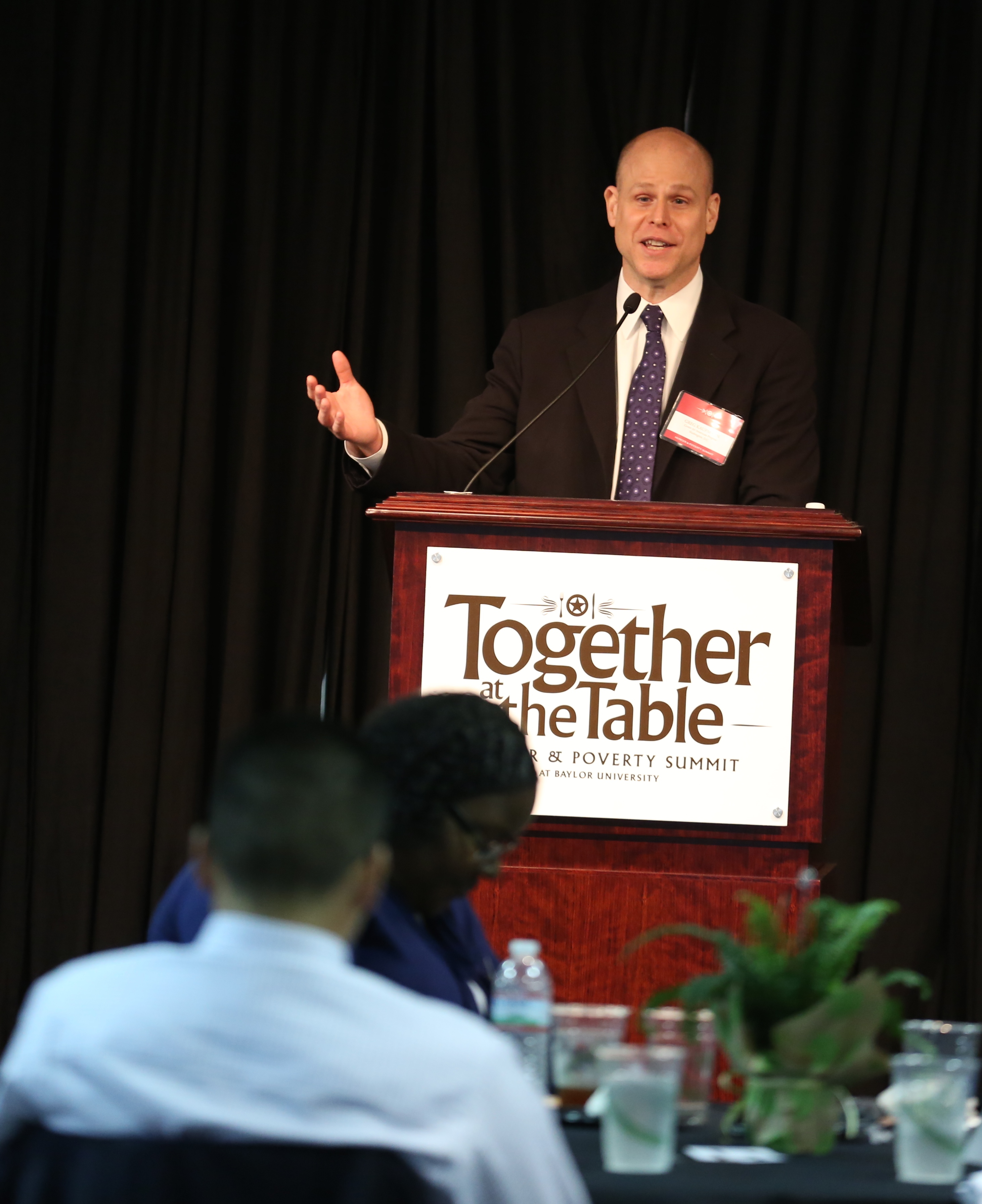This season often seems to consist solely of busyness and hurrying. Making sure year-end deadlines are met, meals are prepared, parties are attended and gifts are purchased. But it is also a time of reflection, a time when we gather with our families and friends, and often a time when we turn our thoughts to peace and joy and faith.
In October, just before the Jewish holiday of Yom Kippur, our friend Greg Kaufmann spoke at our Together at the Table: Hunger and Poverty Summit. His address challenged us, so we are sharing some of his words here with you. As you reflect on what this season truly means to you, we hope his words will inspire and challenge you to join the effort to put an end to hunger and poverty—to find your own way to let your light rise in the darkness.
Yom Kippur begins this Friday night and there is a passage we read from the prophet Isaiah every Yom Kippur afternoon that I believe very much relates to our work and where we are as a nation right now.
First, some Yom Kippur basics: most people know it as the Day of Atonement when Jews fast. But it’s really about much more than that, and strikes some universal themes that relate to our work.
The heart of it lies in the 10 days between Rosh Hashanah and Yom Kippur—called the Days of Awe—when we do what is called “teshuva,” or “turning.” We turn inward to see where we have “missed the mark”—what others might call sin, but it’s really just about seeing where we are, and seeing where we want to be.
And we then turn outward. We ask forgiveness from those we have wronged; and we set our sights on where we want to go in our relationships with our families, friends, communities, and the world. Ultimately, all of this is an effort toward “tikkun olam,” or healing the world.
In Isaiah 58, the prophet calls us to set the oppressed free, share our food with the hungry and to spend ourselves on behalf of the hungry. And if we do these things, he says, then our light will rise in the darkness and we will be called Repairers of Broken Walls.
Isaiah offers us this beautiful, powerful vision, and we know it’s one that we are much, much too far from fulfilling. What’s worse, we’re moving in the wrong direction in too many ways.
The Days of Awe between Rosh Hashanah and Yom Kippur are used as a time to listen and learn, to empathize and act. These are the skills we need as we turn inward, and take stock of where we are; in order to then turn outward, and head in the direction we want to go as individuals and a community.
These Days of Awe are also characterized by something else we can all relate to: yearning.
We yearn to be better spouses and partners; better parents. We yearn to be better siblings, sons and daughters; better colleagues, friends and neighbors.
My hope is that we carry our yearning with us, and that we yearn for the betterment of other people’s lives, just as we yearn for the betterment of our own.
And I hope we will use that yearning to build an anti-poverty movement that is visible, powerful, non-violent, and disruptive to the status quo—just as we witnessed with the civil rights and women’s movements.
I hope we will join the millions of workers who are already taking action to demand an end to poverty wages; to correct the fact that we are the last developed country in the world that still doesn’t have paid family leave and paid sick days for its workers; I hope we will work with faith-based groups and others to expand access to health care which will not only protect the health of vulnerable citizens, but also free household income for other basic needs, like rent and food. And I hope you all will keep doing what you are doing to connect with local communities, put meals on tables, and reduce the stigma and shame of hunger and poverty.
And as we take action, I hope we will not participate in the growing hostility and divisiveness that has taken hold of the media and Capitol Hill.
Because I believe we will get where we want to go not through venom and vitriol, but through the power of our ideas. Not by demonizing our opponents, but by demonstrating what it means to act out of a common humanity; not through self-righteousness, but through standing with the righteous.
Then we will begin to Repair Broken Walls, we will begin to Restore Streets with Dwellings. We will be that well-watered garden, that spring whose waters never fail.
Greg Kaufmann is a Senior Fellow with the Half in Ten campaign at the Center for American Progress and the Editor of TalkPoverty.org. Previously, he was the poverty correspondent for The Nation and BillMoyers.com syndicated his column. He has spoken at numerous poverty-related conferences and has been a guest on MSNBC, PBS, NPR, and radio talk shows across the United States. His work has also been featured on “Moyers & Company,” CBSNews.com, NPR.org, WashingtonPost.com, and BusinessInsider.com. Kaufmann serves as an advisor to the Economic Hardship Reporting Project and on the board of Mary House in Washington, D.C. Kaufmann graduated from Dickinson College and studied creative writing at Miami University in Ohio. He lives in his hometown of Washington, D.C., with his wife, son, and two daughters.